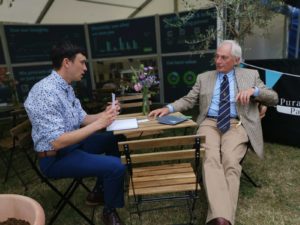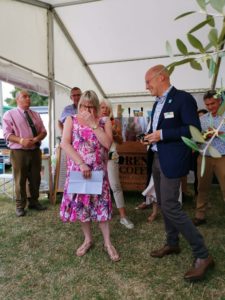Home > AF showing the way
AF showing the way
AF had teams at Groundswell and Royal Norfolk Show on 28th and 29th June. Valuable meetings were had with Members as well catching up with the latest thinking and innovations across the agricultural spectrum.
Generating interest at Groundswell Regenerative Agriculture Festival
In its eighth year, Groundswell continued to flourish. Colleagues met Members, prospective new Members and suppliers on our stand, where we offered our regenerative flavours of ice cream and wool pot ‘seed bombs’.

Bison grass & tonka bean ice cream representing one of the five principles of regenerative farming: bring animals back to the land.
There was huge interest in well price procurement of inputs for farming, at every stage of steps to regenerative farming. Those already on the regenerative farming journey were looking for new opportunities and methods, whilst those struggling with the ‘side effects’ of min-till were hoping for tips on achieving better results. Lots of first timers there to understand first steps in regenerative farming. And plenty of international farming visitors in the throngs.
Our colleagues also took advantage of the arrange of seminars and talks to keep themselves, and AF, at the forefront of agricultural innovation and leadership.
Regenerative classification?
From one seminar where he heard from a panel of farmers, scientists and policy advisors, AF Head of Livestock Inputs & General Kristian Dunham reported: “Is it time to certify regenerative farming?
“The consensus was not yet, it’s too early to certify as there is no agreed definition of regenerative agriculture. However, early adopters need a premium for regeneratively produced goods, not just the prestige!
“The line between regenerative and organic is becoming blurred. Clear definitions are needed now, before consumers become confused and disinterested.”
Soil carbon testing
Susie Emmett joined 100 farmers listening to Agricarbon.co.uk on soil carbon sampling.

Who’s doing it?
- Individual farmers and landowners who want to benchmark soil carbon now as they know it will have value in future as they enter the environmental scheme to suit them.
- Agents bringing farmers together to understand best practices, and to create output of value to their carbon customers.
- Food companies keen their farmer suppliers measure to get a baseline and adopt practices to increase soil carbon and other nutrients.
Costs vary depending on variability in the farm, soil and field but c£25-30/ha. It is much lower, c£15/ha or less for large projects.
Insights from Sweden
Kristian also attended ‘Human scale regenerative farming’ by Richard Perkins, a pioneering farmer from Sweden and author of ‘Regenerative Farming’.
Richard advocated stacking farming enterprises on top of each other to maximise income. He also reminded us that dead/unused space is lost income, so strives to minimise it; for example putting chickens between planting runs in greenhouses.
His advice? Scale back – several smaller, highly profitable enterprises can often be run and managed better than large scale cropping.
He explained the interesting Finnish Reko-Ring sales model for direct sales of farm produce to consumers. The producer arranges to be in a fixed location for an hour each week via a closed Facebook group, and his customers come and collect their orders. The big question is whether there would be consumer appetite for this in the UK?
Dairy grazing
Natasha Edwards attended a regenerative dairy grazing talk by two Arla farmers.
Talking openly about their own experiences, they highlighted the importance of taking account of different breeds of cow, types of system and understanding the essential element(s) of your yield.
Their benefits of regenerative grazing for dairy cows:
- Resilience as grass is left longer – it’s like having silage in store and gives a buffer
- Cost reduction – this grazing system reduces buffer feed
- Some anthelmintic properties in herbal leys
- Increases fungal to bacterial ratio in soil biology so you naturally grow the grasses that you want.
But it’s not without its challenges:
- Balancing available grazing, quality, silage production and deferred grazing becomes more of art than science
- Staff and family who want to stick to traditional grazing systems who have opposing views
In summary: Better soil, better pasture, better animal, better product!
Spirits undampened by the weather at Royal Norfolk Show
We were delighted to welcome Members from across East Anglia (and further afield) to our stand for hot drinks and iced teas.

AF’s Energy Procurement Manager Paul Molloy in conversation with an AF Member.
Topping the list of conversational topics were fuel and energy, with huge interest in AF Fuel Cards.
Members were also pleased with AF’s decision to seek their early commitment to the new EDF electricity contract for March 2024, with a number reporting they’d already signed up.
AF Fertiliser Procurement Manager Josh Joachim was in demand. Members were getting quotes and placing orders for Fibrophos and nitrogen.
As always Robert George, AF Telecoms Business Development Specialist, was inundated enquiries about landline and mobile telecoms, whilst Paul Molloy discussed energy billing, smart meters and account reviews with many of our visitors.
In the evening, we were joined by AF Members and suppliers to show our appreciation of long serving colleagues like Bridget Knock, who retires this summer after 30 years as part of your AF team.

Until next year…
The recent flurry of shows, including Royal Highland and Down to Earth South, have been a valuable opportunity to meet Members and suppliers. We always enjoy the chance to meet and discuss how we can help Members make the most of their AF memberships.
We’ll be in touch to follow up your requests for information and quotes in the coming days.
George Youngs Procurement Analyst
george.youngs@af.farm 01603 881 846



